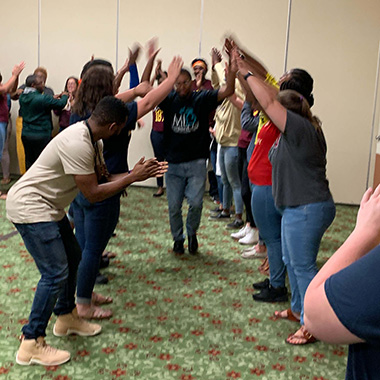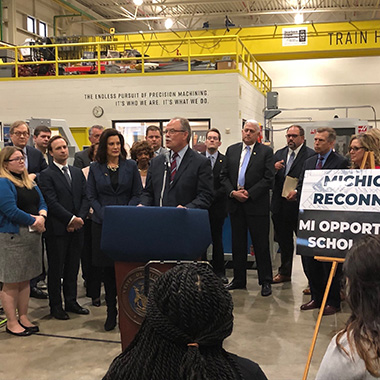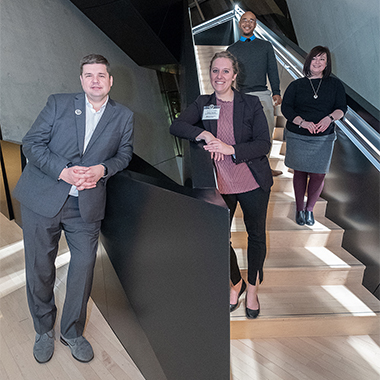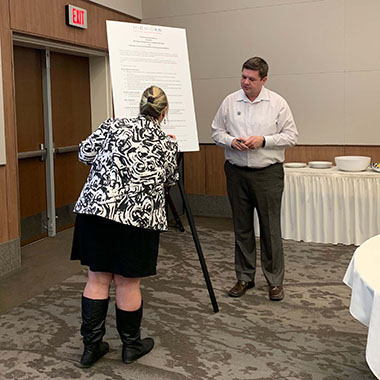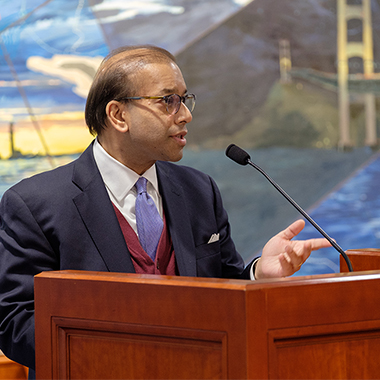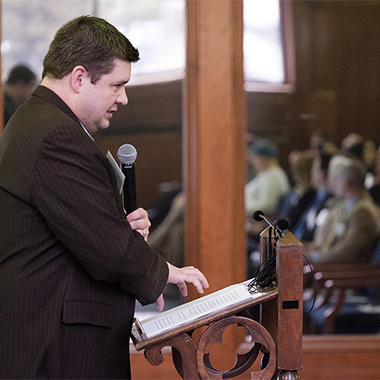2019 A year of change.
Transitioning MCAN’s executive director and establishing a recommitment to equity.
Change was the name of the game in 2019. In January Gov. Whitmer took office, bringing waves of change across the policy realm. Strategies shifted, and everyone remained vigilant to influence new policies.
“What’s really important about MCAN is the social justice aspect of leading people to high quality education and futures. MCAN is an organization that is specifically aimed at bringing these opportunities to people who need them. It is a hugely important effort.”
Staff changes
When former Executive Director Brandy Johnson was invited to serve in the Executive Office of Gov. Whitmer as the Education and Workforce Policy Advisor in early 2019, it was an opportunity she simply couldn’t pass up. “I knew that this role would give me a platform to directly address college access issues at the executive level, extending MCAN’s mission,” Brandy says.
At MCAN, the team worked hard to make this transition as smooth as possible. “The reason the transition after Brandy seemed seamless is that we've tried really hard to maintain collaborative leadership while growing,” says Deputy Director Jamie Jacobs. “It’s not exactly a horizontal structure, but there is so much to own and lead on in your space at MCAN. A piece of our DNA is the idea that everyone is a contributor and idea generator. We believe that, if you have an idea, say it — but be ready to implement it. So, even before the director transition, those ideas were already up-to-date. What made the transition seamless were those qualities that are still a part of the culture.”
“The MCAN team is committed, smart, and dedicated people. There is a commitment to inclusiveness, paired with action; MCAN is appropriately delivering on its commitment to racial and ethnic justice."
Preserving relationships
MCAN worked to maintain the trust of partners and funders throughout this transition as well. “It’s a huge testament to MCAN that, after Brandy left, Ryan was able to step into the executive director role and has been doing an amazing job,” says Caroline Altman Smith, deputy director of education at The Kresge Foundation. “The fact that their staff is long-standing and has been consistently committed — along with LCANs, funders, board members, and policymakers — is important to highlight.”
"I believe that college access should be a right and not a privilege. MCAN is such a leader and voice for diversity."
Adapting our voice
During 2019, MCAN also realigned its mission, vision, and values to place greater emphasis on equity. For many board and staff members, this commitment to equity and social justice is personal. “I am thankful to my ancestors and my grandparents for paving the way for me to get an education and be successful, so that I can fight, sacrifice, and advocate the way they did for the learners that are coming after me,” says Melissa Isaac, director of education for the Saginaw Chippewa Indian Tribe and MCAN board member. “I feel like that’s what my MCAN board seat has the ability to do for the learners that are coming after me as well.”
Top Accomplishments
- Revised our goal to Sixty by 30 to align with the State
- Named Ryan Fewins-Bliss executive director
- Realigned our mission, vision, and values to place greater emphasis on equity
- Created the Michigan Postsecondary Strategy Institute (MPSI) in collaboration with the National Postsecondary Strategy and The Kresge Foundation
- Partnered with Gov. Whitmer to introduce the Governor’s FAFSA Challenge
- Held our ninth annual conference with 625 attendees. This was our largest conference yet, and saw roughly twice the attendees from our inaugural conference ten years prior.
- Saw the largest-ever turnout for College Access Advocacy Day, with 99 attendees, 85 legislative appointments, and an appearance from Gov. Whitmer
- Saw Michigan hit its highest college attainment rate ever, after increasing for eight consecutive years, according to the 2019 Stronger Nation report released by Lumina Foundation
- Launched College Bound Michigan, which combined the three statewide initiatives into one program and streamlined registration for MI College Month, MI College Cash Campaign, and MI College Decision Day
- Marked a record number of Michigan schools participating in College Decision Day, totaling 301 schools and marking the highest participation rate in the nation
- Partnered with Michigan Concurrent Enrollment Partnerships (MiCEP) to better leverage resources and opportunities to improve the state's postsecondary attainment rate
"Indigenous people need a voice at the table, so being able to connect with other tribal educators and our communities led me to join the MCAN board. I thought MCAN was made up of like-minded people dedicated to advocacy. That’s not always the case in places that I go. I’m the first indigenous person to serve on this board, which is exciting to me. Through this opportunity, our priorities can be amplified and I’m so thankful that MCAN recognizes this."
